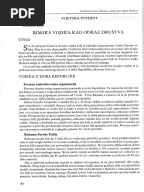De Administrando Imperio Pdf
Description de l’Ukraine in light of De Administrando Imperio: Two Accounts of a Journey along the Dnieper. During his service under Polish banners BEAUPLAN took. De Administrando Imperio. Bury: Free Download & Streaming: Internet Archive. Identifier- accesshttp: //www. Identifier- arkark: /1. Sparco Name Badge Template there.

A wise son maketh. Glad a father, and an affectionate father taketh delight in a prudent son. For the Lord giveth wit to speak in season, and addeth thereto an ear to hear; with Him is the treasure of wisdom, and from Him cometh every perfect gift; He setteth kings upon the throne and giveth unto them the lordship over all.
Now therefore hearken unto me, my son, and being adept in this my teaching thou shalt be wise among the prudent, and be accounted prudent among the wise; the peoples shall bless thee, and the multitudes of the nations shall call thee blessed. Be instructed in what it behoves thee before all else to know, and lay hold skilfully upon the helm of the rule. Study the things that are now, and be instructed concerning the things that are to be, so that thou mayest amass experience with sound judgment, and thou shalt be most competent in thine affairs.
Russians ('Ρώς) It goes without saying that there were no Russians during Constantine VII Porphyrogenitus time. During his time, Ruses lead an army composed of Varangians, Chud, Slovenes, Merya, and all the Kriviches. The Varangians, Slovenes, and the others who accompanied him (Oleg) were called Rus (Primary Chronicle, year 882/6390).
The Laurentiev Chronicle later adds the tribes of the Chud, Ves, Muroma, Cheremis, Mordva, Perm, Pechora (Laurentiev Chronicle). The Russians belong to the Imperial Period, some 600 or 700 years later, and they have little, if any, in common with the Rus.
The distorted translation `Ρώς = Russian conflicts with the narrative of Constantine VII Porphyrogenitus. Korg M1 Mac Serials. The Pechenegs (Patzinaks) are neighbors to and march with the Russians (Rus) also, and often, when the two are not at peace with one another, raid Russia, and do her considerable harm and outrage. 51 2, 3, 4 The Russians (Rus) also are much concerned to keep the peace with the Pechenegs (Patzinaks). For they buy of them horned cattle and horses and sheep, whereby they live more easily and comfortably, since none of the aforesaid animals is found in Russia (Rus). Moreover, the Russians (Rus) are quite unable to set out for wars beyond their borders unless they are at peace with the Pechenegs (Patzinaks), because while they are away from their homes, these may come upon them and destroy and outrage their property. And so the Russians (Rus), both to avoid being harmed by them and because of the strength of that nation, are the more concerned always to be in alliance with them and to have them for support, so as both to be rid of their enmity and to enjoy the advantage of their assistance.
Nor can the Russians (Rus) come at this imperial city of the Romans, either for war or for trade, unless they are at peace with the Pechenegs (Patzinaks), because when the Russians (Rus) come with their ships to the barrages of the river and cannot pass through unless they lift their ships off the river and carry them past by portaging them on their shoulders, then the men of this nation of the Pechenegs (Patzinaks) set upon them, and, as they cannot do two things at once, they are easily routed and cut to pieces. Of the Pechenegs (Patzinaks) and Turks (Τούρκοι, Turkoi, Hungarians). Far side of the Dnieper river The far side of the Dnieper river, or its left bank, at around 900 AD housed two peoples, Black Bulgars and Polyans or Alans (Sl. Field ~ pole >Polyans, Tr. Field ~ alan >Alans). Bechens must have shared the winter pastures with the Black Bulgars and Polyans or Alans, or else the Polyans or Alans moved eastward to the Azov Sea banks, their traditional winter quarters. The Atilkuzu west of the Buh river was taken by the Hungarians, or a compact of Magyars and Kubar Bulgars.